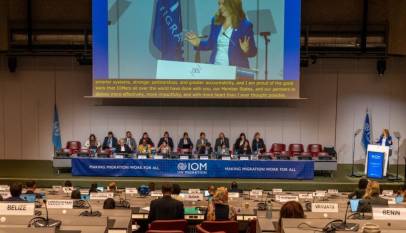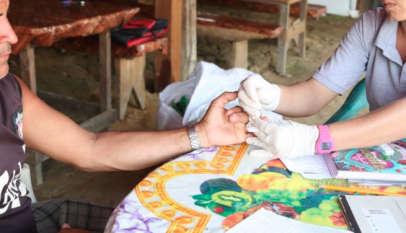“200 million girls, women living with consequences of female genital mutilation”

Not less than 200 million women and girls around the world are living with the damage caused by Female Genital Mutilation/ Cutting (FGM/C), says the United Nations.
This was contained in a joint press statement by the executive directors of the United Nations Population Fund (UNFPA) and the United Nations Children’s Fund (UNICEF), Babatunde Osotimehin and Anthony Lake, respectively, in commemoration of the 2017 International Day of Zero Tolerance for FGM.
“It [FGM] irreparably damages girls’ bodies, inflicting excruciating pain. It causes extreme emotional trauma that can last a lifetime. It increases the risk of deadly complications during pregnancy, labour and childbirth, endangering both mother and child. It robs girls of their autonomy and violates their human rights,” says the joint statement.
The statement which says FGM reflects the low status of girls and women as well as reinforces gender inequality adds that it “fuels intergenerational cycles of discrimination”. It says that despite the progress made in efforts for the abolishment of FGM in the world, millions of girls will be forced to undergo the practice in 2017.
“In 2015, the Sustainable Development Goals recognized the close connection between FGM/C, gender inequality, and development – and reignited global action to end FGM/C by 2030. In 2016, more than 2,900 communities, representing more than 8.4 million people living in countries where UNFPA and UNICEF work jointly to end FGM/C, declared they had abandoned the practice,” says the statement.
Therefore, the UN agencies demanded for faster action to build on progress made calling on governments to enact and enforce laws that protect the rights of girls and women and prevent FGM/C.
“It means creating greater access to support services for those at risk of undergoing FGM/C and those who have survived it. It also means driving greater demand for those services, providing families and communities with information about the harm FGM/C causes – and the benefits to be gained by ending it. And ultimately, it means families and communities taking action themselves and refusing to permit their girls to endure the violation of FGM/C,” it adds.
Africa accounts for a huge percentage of the world’s 200 million women and girls living with Female Genital Mutilation or Cutting (FGM/C).















